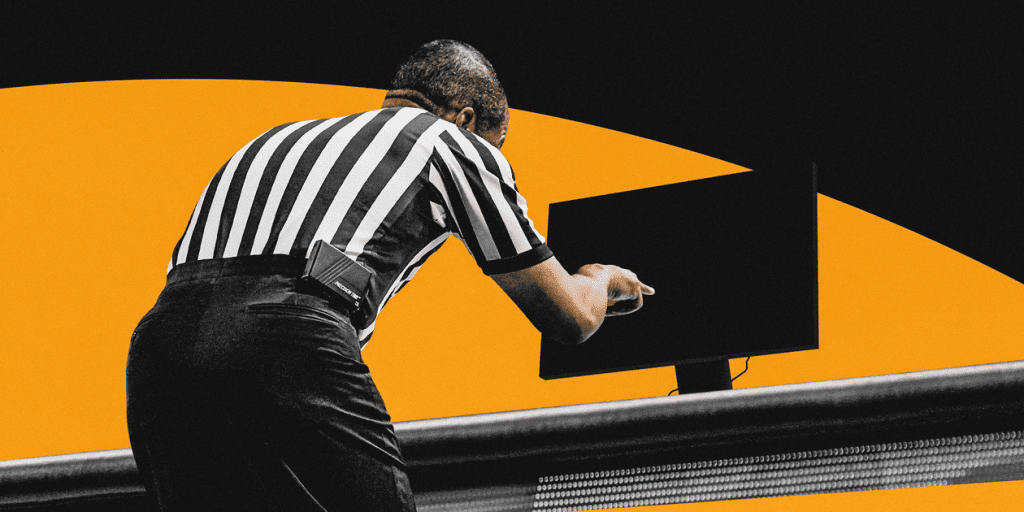Challenges for College Basketball: The Quest for Efficiency
Recently, the last glimpse of men’s college basketball before the NCAA Tournament featured Michigan’s narrow victory over Wisconsin in the Big Ten tournament final, which was marred by excessive stoppages and frustrating reviews.
The game was bogged down by multiple out-of-bounds calls, each of which required unnecessary reviews—one of which was so clear it didn’t need scrutiny. This tendency of officials to review every call detracts from the game, resulting in a drawn-out end to an exciting match. Specifically, it took over 15 minutes to conclude the final 77 seconds of play.
This trend has sparked dissatisfaction amongst fans, as the NCAA Tournament should encapsulate happiness and excitement, from the unveiling of the bracket to the final net cut. However, many have noted that the longer TV timeouts (30 seconds each) and extended halftimes (five minutes) have affected the flow of what should be a fluid and enjoyable experience.
SEC associate commissioner Garth Glissman remarked that persistent efforts to enhance officiating accuracy through instant replay might harm the fundamental nature of the game, hinting at the need for change. A proposed challenge system, similar to that of the NBA, could be on the horizon, provided NCAA rule-makers recognize its merit—an idea supported by Glissman and the SEC, although it might face resistance from coaches.
It’s crucial to note that officiating, like any other human element in basketball, will always have its flaws. Historically, the game thrived before the advent of replay, which now plays a too-intrusive role in gameplay. The introduction of limited challenges could improve the experience for fans and players alike, reflecting improvements seen in the NBA.
While some coaches focus solely on achieving accuracy, suggesting that game flow is less important, upcoming discussions in May among the NCAA Men’s Basketball Rules Committee may pave the way for much-needed rules changes. Options such as limiting reviews in the final minutes or considering a challenge system could streamline the game and minimize unnecessary interruptions.
As college basketball gears up for the upcoming tournament season, it’s hoped that the focus will return to the sport itself rather than the reviews. By adopting more efficient practices, officials, coaches, and players can work together to create an environment that prioritizes the game’s natural rhythm—a necessity for the longevity and enjoyment of college basketball.



